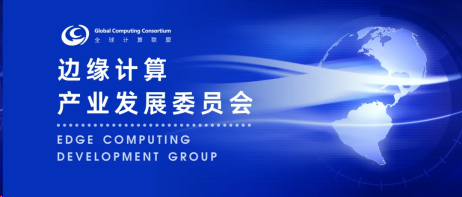

News
Digitalization is sweeping the world, driving new technological and industrial revolution with growing momentum towards a fully connected and sensed, intelligent world. In this process, edge computing is essential, integrating network connectivity, data aggregation, chipsets, sensing, and AI to improve operational, information, and communications services. This trend has turned edge computing into a gravitating sensation of computing, new information businesses, and industry transformation.

This has also prompted the Global Computing Consortium (GCC) to establish the Edge Computing Development Group at the Second Session of its First Council Conference. The group will take over the original Edge Computing Consortium (ECC) to promote the collaboration among governments, industries, academics, research, and applications. It will serve as a platform for accelerating the use of edge computing across industries through openness and cooperation between OT and ICT fields, ultimately facilitating the healthy and sustainable growth of edge computing.
This move by GCC plays into digitalization trends in China and beyond. Propelled by the fast-tracked growth of AI, big data, industrial Internet, and 5G, edge computing is gaining widespread attention, as it becomes more technologically developed to support diverse use cases.
The group has placed a long list of top priorities on consolidating the consensus, technical research, adoption, and ecosystem development of edge computing. For example, it will organize its members to write white papers and arrange for technical and industry workshops. It will focus on research into intelligent and native edge technologies as well as edge computer vision and security based on open source. It will enable edge computing applications, especially in these areas such as network carriers, industrial manufacturing, electric power and energy, smart cities, and smart transportation. It will facilitate the cooperation with industry organizations, research institutes, edge computing vendors, carriers, chip and device vendors, cloud service providers, and software and solution providers on key projects to support the rapid development of edge computing.
Digitalization is sweeping the world, driving new technological and industrial revolution with growing momentum towards a fully connected and sensed, intelligent world. In this process, edge computing is essential, integrating network connectivity, data aggregation, chipsets, sensing, and AI to improve operational, information, and communications services. This trend has turned edge computing into a gravitating sensation of computing, new information businesses, and industry transformation.

This has also prompted the Global Computing Consortium (GCC) to establish the Edge Computing Development Group at the Second Session of its First Council Conference. The group will take over the original Edge Computing Consortium (ECC) to promote the collaboration among governments, industries, academics, research, and applications. It will serve as a platform for accelerating the use of edge computing across industries through openness and cooperation between OT and ICT fields, ultimately facilitating the healthy and sustainable growth of edge computing.
This move by GCC plays into digitalization trends in China and beyond. Propelled by the fast-tracked growth of AI, big data, industrial Internet, and 5G, edge computing is gaining widespread attention, as it becomes more technologically developed to support diverse use cases.
The group has placed a long list of top priorities on consolidating the consensus, technical research, adoption, and ecosystem development of edge computing. For example, it will organize its members to write white papers and arrange for technical and industry workshops. It will focus on research into intelligent and native edge technologies as well as edge computer vision and security based on open source. It will enable edge computing applications, especially in these areas such as network carriers, industrial manufacturing, electric power and energy, smart cities, and smart transportation. It will facilitate the cooperation with industry organizations, research institutes, edge computing vendors, carriers, chip and device vendors, cloud service providers, and software and solution providers on key projects to support the rapid development of edge computing.